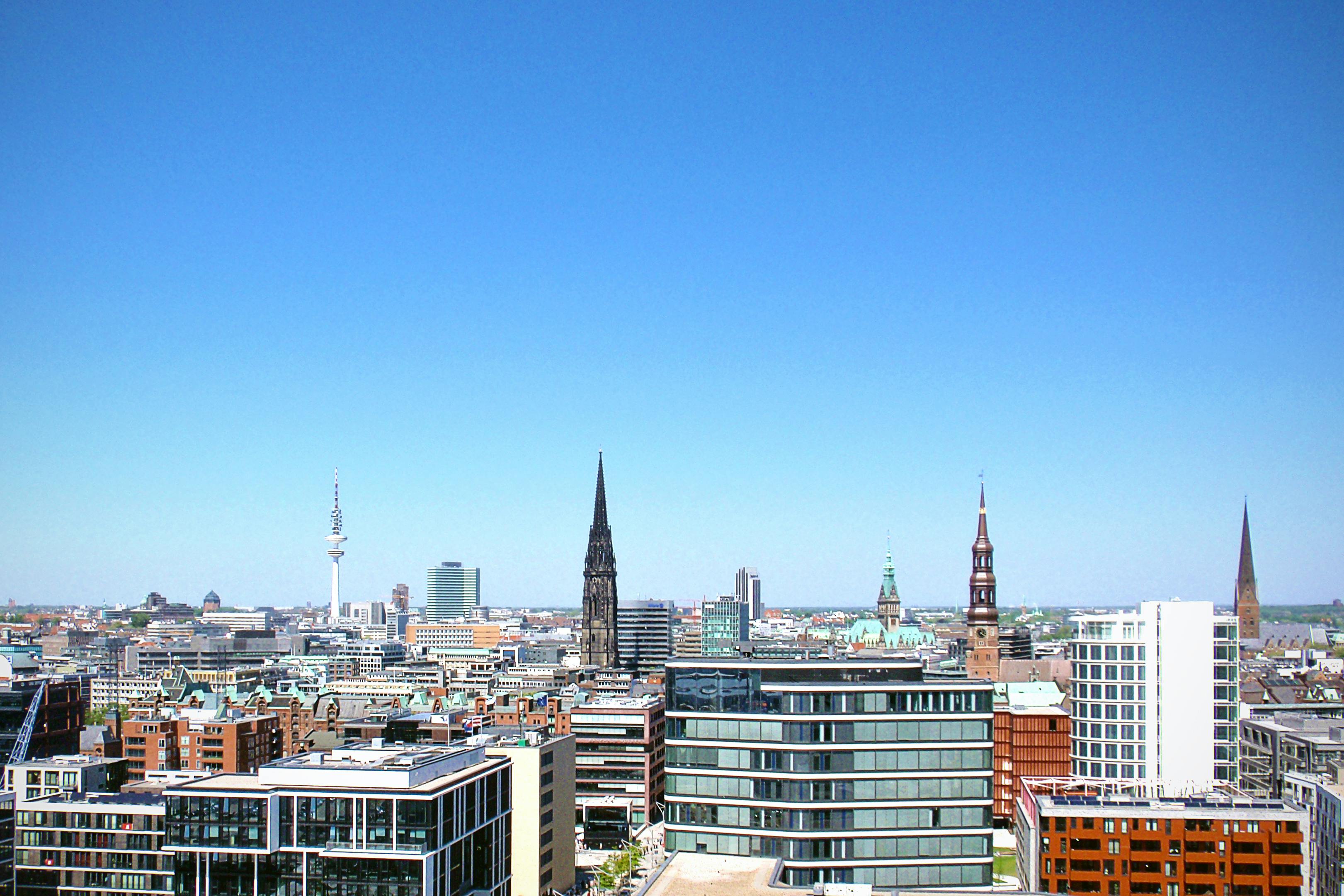A catalyst for ground-breaking innovations, a driving force behind relentless determination, and a push for striking strategic partnerships - what could this key differentiator in your venture's journey be?
It's the power of mindset. As leaders and innovators, the mindset you embody has a profound influence not just on your perception of success, but also on your ability to overcome challenges and hurdles along the way.
From the genesis of an entrepreneurial journey, understanding the key question of "What is Fixed Mindset and Growth Mindset?" becomes the compass guiding businesses and startups toward success.
Diving deeper, two primary types of mindsets exist amongst business people like you - the Fixed Mindset and the Growth Mindset. Understanding these concepts and recognizing the one that predominantly drives your decision-making and problem-solving can be an enlightening exercise for your venture's future progression.
With the power to shape the culture, dynamics, and overall trajectory of promising businesses, these concepts are worth delving into. Stay tuned as we unfold the difference between fixed and growth mindset and how these paradigms correlate to your business' growth potential.
The Definition and Concept of Mindset in Business
A. Understanding the notion of a 'mindset' is pivotal to navigate the complex terrains of business development. At its core, a mindset is the collective cognizance or general attitude you and your team hold. It's the mental lens through which you perceive challenges, interpret successes or failures and ultimately, make crucial decisions affecting your organization's path.
B. The significance of the mindset within your business environment should be considered. Your strategic actions, creativity, resilience, and even your teamwork approach reflect your collective mindset. It's a foundation that determines how you respond to stress, rebound from setbacks, and seize opportunities. By grasping its importance, you prime your venture for agile adaptation and innovation in our rapidly evolving business climate. Indeed, the mindset often draws the line between companies that merely survive and those that truly thrive.
C. Take a look at the leaders in your particular business segment. What kind of mindset is embodied by the best leaders, or fastest growing success stories, in your space? This can help you understand not only the broad mindset concept, but the details of how they implement it in day-to-day business.
Understanding Fixed Mindset
A Fixed Mindset, as the name suggests, is based on the belief that skills and intelligence are predetermined or fixed. Entrepreneurs who embrace this mindset often think their abilities and talents are set in stone, with little room for development or growth in the face of adversity.
This mindset stands out with certain hallmark characteristics. You might find the fear of failure prevalent in your teams, often stifling initiative and risk-taking. There may also be a greater tendency to avoid challenges and give up easily when confronted with obstacles. Moreover, criticism is often taken personally instead of being seen as constructive feedback and opportunity for growth.
If your venture operates with a predominantly Fixed Mindset, it might find scalability and adaptability challenging. The resistance to change could restrict innovative thinking and stifle your growth potential.
On the other hand, considering failure as a pitfall instead of a learning opportunity might lead to your team not taking calculated risk, a prominent inhibitor for startup evolution and success.
Now, let's shed some light on the other side of the spectrum - Growth Mindset.

Delving into the Growth Mindset
A. Contrary to its fixed counterpart, a Growth Mindset is rooted in the perspective that abilities, intelligence, and skills can be developed with time and effort. For those of you charting the entrepreneurial waters, a Growth Mindset encourages openness, welcomes challenges, and perceives failures as stepping stones to learning.
B. If your team exhibits a keen eagerness to learn, resilience in tackling obstacles, and a voracious appetite for constructive feedback, they are likely operating from a Growth Mindset. Such a mindset sparks innovation and ingenuity, empowering your organization to venture beyond conventional paradigms.
C. The impact of a Growth Mindset on startup progress and innovation can be markedly transformative. With an ideology that perceives challenges as opportunities and cultivates lifelong learning, you propel your venture to not just adapt to change but to be the harbingers of it. This not only fuels the innovative potential of your venture but also fosters a dynamic, risk-embracing culture that's crucial for nascent businesses' success in today's entrepreneurial landscape.
Next, let's articulate the difference between fixed and growth mindset.
Fixed Mindset Vs. Growth Mindset: The Key Differentiator in Startups Success
So what is fixed mindset and growth mindset in the world of startups?
Turning pages of the entrepreneurial chronicles, we find countless examples of successful startups that have leveraged either or both of these mindsets. BlocksCAD, co-founded by Jennifer Canvasser with the belief in ever-evolving skills, showcases a Growth Mindset. In contrast, Theranos, led by Elizabeth Holmes, exhibited a Fixed Mindset, valuing secrecy over learning and growth, leading to its infamous downfall.
Among the stories of a Fixed Mindset, we find Kodak. Once considered an indomitable force in the photographic film industry, Kodak held steadfast to its existing technology, refusing to adapt in the face of the digital revolution. This rigid mindset eventually led to their bankruptcy in 2012.
Similarly, Blockbuster Video, the former giant in video rental services, is another illustrative example of a Fixed Mindset. Failing to adapt to the rising trend of online streaming services, they declined multiple offers to purchase Netflix, an error that led to their downfall.
Conversely, with a Growth Mindset, we have Airbnb as an epitome. After struggling to maintain funds, its founders resorted to selling custom-made cereal boxes during the 2008 recession. Seeing adversity as a chance to innovate, Airbnb is now a global platform for lodging and tourism experiences.
WhatsApp co-founder Jan Koum also demonstrated a remarkable Growth Mindset. Growing up in a society with restricted communication, Koum capitalized on the pain point to transform it into an opportunity and created a platform to simplify global communication. Even after facing several rejections in the early stages, Koum's belief that skills can be learned contributed to the development of one of the most popular messaging apps globally.
The critical role of mindset in these diverse entrepreneurial journeys is impressive, shaping venture culture, strategic decision-making, and ultimate success.
Powering the Business Engine: How a Growth Mindset Fuels Innovation, Resilience and Investor Attraction
The Founders' Mindset lays the cornerstone for your venture's culture and growth. A Fixed Mindset could restrict your venture's potential to evolve and innovate, constructing an environment resistant to change and learning. Conversely, a Growth Mindset cultivates a culture encouraging learning and embracing mistakes, fueling creativity, dynamism, and resilience—the key ingredients for startup success.
Leveraging a Growth Mindset in your entrepreneurial journey can foster a culture of learning, risk-taking, and innovation. Embracing failure as an imperative component of success, cherishing the learning process rather than just the outcome, and encouraging flexibility and adaptability can monumentally expedite startup success. By consciously fostering a Growth Mindset, you create a resilient, creative, and continually evolving ecosystem to reach new summits of success.
The impact of leveraging a Growth Mindset within your startup extends beyond internal development and operations; it significantly influences external stakeholders and prospective investors.
For startups, innovation, flexibility, and adaptability are considered the lifeblood of success. Embracing a Growth Mindset within your team inherently fosters these elements by nurturing continuous learning, embracing change, and viewing challenges as opportunities for growth. An environment that promotes test-fail-learn-repeat cycles can speed up the innovation process, driving fast, customer-oriented solutions that set your venture ahead in the competitive landscape.
When it comes to attracting investors, your startup's culture critical, and its roots are often traced back to the founders' mindset. Investors are drawn towards businesses that can demonstrate resilience, adaptability, and a capacity for innovation. A Growth Mindset signals these traits in abundance. It showcases a forward-thinking leadership and a team that can weather the unpredictable storms of a startup journey while still steering the venture towards scalable growth.
Additionally, demonstrating a Growth Mindset signifies that you value feedback - a crucial quality for any successful business partnership. The ability to adjust and pivot based on constructive criticism showcases a dynamic enterprise that is primed for long-term success.
By consciously cultivating a Growth Mindset within your organization, your venture becomes a fertile ground for continuous learning, resilience, and adaptation. This not only increases the chances of your startup's success but also positions it attractively for potential investors, appealing to their instinct to back ventures with higher probabilities of growth and success.

Steering Your Startup to Success: How a Growth Mindset Ignites Innovation and Woo Investors
Discerning "What is a Fixed Mindset and Growth Mindset?" can distinguish between a venture that evolves to conquer market challenges and one that stagnates, unable to break through the barriers of change and innovation.
The Growth Mindset unfailingly emerges as the decisive element for driving success in the fast-paced, highly competitive startup ecosystem. It fosters an environment of continuous learning, driving innovations that meet market needs and challenges. It nurtures resilience and perseverance, vital qualities that help startups survive and thrive amidst uncertainties.
Embodying a Growth Mindset makes a strong impression on potential investors, signalling your venture's propensity for scalability, adaptability, and long-term growth. When you demonstrate an open-minded approach to challenges, a relentless quest for learning, and a high tolerance for failure, you paint a picture of a venture primed to succeed.
The mindset you choose to adopt as founders and leaders will directly influence your startup's journey. Foster a Growth Mindset within your venture, pave your way to incessant innovation, and position your startup to attract the right investors propelling growth.
At Wayra, we want to hear about your innovative idea. See you soon.














